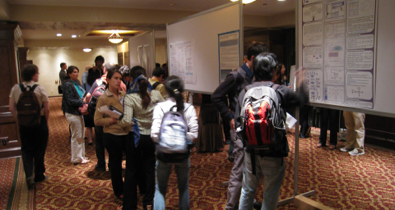
Too bad we didn’t get time to visit Niagara Falls—it would have made a much better picture!
7/24/2009
 |
I am attending the International Conference
on Biomedical Ontology in Buffalo, NY. Here are some
thoughts about the state of the art of ontologizing. Too bad we didn’t get time to visit Niagara Falls—it would have made a much better picture! |